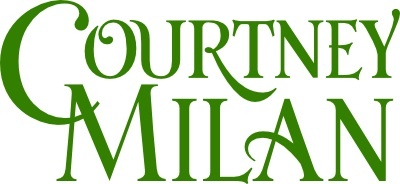Both traditional publishing and self publishing have their adherents, and the battle lines are being drawn.
So, how come there are battle lines?
If someone wants to self-publish, go ahead! If someone wants to sign a contract with their traditional publisher, go ahead! I may care about the outcomes for my friends, because I care about my friends, but it’s hard for me to get worked up because some dude I don’t know just signed a contract for books that will come out in 2014. It’s his choice. So maybe he doesn’t make as much money. I generally don’t get exercised about unknown people who make business choices that only impact their personal lives. That’s because I think of writing as a business, something that I should approach rationally, with reasonable questions in mind, not as a religion that should be taken on faith and not doubted.
Here’s a little test you can run so that you can differentiate between a business model and a religion.
- Do you think that everyone should do it your way?
- Do you think that everyone that disagrees with you simply doesn’t understand what you know so well?
- Do you use words to describe people who disagree with you that are derogatory in nature?
- Do you secretly (or not so secretly) think that everyone doing it differently is misguided and just needs to come to the light?
Congratulations! You are espousing a religion.
- Do you think that profit and loss depend on individual circumstances?
- Can you list circumstances that make profit more likely?
- Do you accept that, even under the best of circumstances, loss might still occur?
- Do you believe that reasonable people might differ, and that different ways of doing things might still both prove profitable?
Congratulations! You probably have a business model.
Please note that there are business model/religion types on both sides of the self/traditional publishing divide. There is nothing wrong with having a religion, or holding strong beliefs. Just try to recognize that, as with all religions, someone else holds different beliefs dear, and there’s no need to vilify them for it.

Whew! I have a business model.
🙂
For those following along at home, it works like this.
Q. Why, oh, why, did Barry Eisler turn down half a million dollars in a traditional publishing deal?
A. Because he thought it would make him more money.
Q. Oh, yeah, genius? Why, oh, why, did Amanda Hocking make a traditional publishing deal, then?
A. …Presumably, because she thinks it will make her more money?
Both can be true, y’know. Not every player needs to sign with the same team, and one sign of a vibrant marketplace is, in fact, when they don’t. Amanda Hocking and Barry Eisler are in vastly different places, and I can point to one place where they differ substantially: the positioning of their backlist.
Barry’s digital backlist earns him very little per sale, is priced high, and if I’m reading the lengthy discussion on Konrath’s blog right, doesn’t matter because he hasn’t earned out any of his advances yet. So he has zero income streams. When he writes more books, people will buy more of his backlist–but he gets nothing from that. He’s making his money on his frontlist, plain and simple.
Amanda’s digital backlist earns her substantially more, and is priced low. So people who discover her–and more people will discover her through traditional publishing–will glom onto her backlist.
She has what, 10 books out? And she has the potential to get millions more readers in her fanbase? A traditional publishing deal could grow sales of her backlist by at least as much money as she makes on the publishing deal.
Different people, different positions, different analysis.
Thank you for posting a rational stance on this issue.
Some of the stuff out there…Well, I could substitute “the great and powerful Oz” for “self publishing” or “traditional publishing” without changing the message.
The Hocking vs Eisler observation…agreed.
Both!!! Especially after a triple macchiato!
OK, well, mostly the second one. Certainly at the moment there is a place for a writer to do both print and self-pub.
Carolyn, exactly. Just as you see writers writing for e- and traditional houses, you can see people doing both print and self-pub.
Nothing wrong with diversification.
It would be hard to live in the real world of writing and promoting books with the religion perspective. You would spend a lot time feeling hurt and misunderstood.
The impulse to be a storyteller is vocational, no better or worse than other people’ sense of vocation. But the work of selling is a business, and there are many ways it can be done.